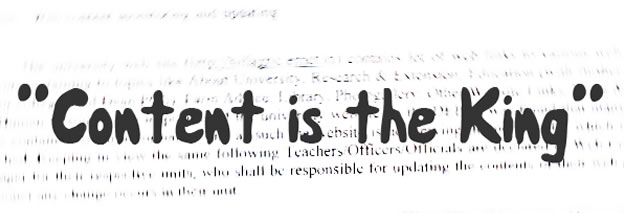If the content is king, data is queen
Article originally posted in the blog of WCRS, where I worked as a Creative Technologist

Open data has become a very serious topic. Governments and corporations invest a lot of effort in1 developing software to capture, process, store and distribute data (data.gov.uk, data.gov, Google API, Twitter API, Flickr API, Facebook API etc.), which is then offered back to the community.
Although the neutrality of the Internet is being questioned and threatened by lobbies and governments across the world, we know that open data is good for the Internet community, but we cannot guarantee for how long it will remain free and public. At the same time, government-employed hackers and hacktivists](http://en.wikipedia.org/wiki/Hacktivism) like Anonymous are increasing their activities on the Internet, sometimes using a white hat and sometimes a black hat, which makes data vulnerable.
You might think that Internet security and data ownership/freedom are not powerful enough arguments to worry about the future of open data, and you might be right, but I have a second reason… agility. Yes, sadly web APIs are known to be slow and some of them have a limit to the amount of data you can request per hour or per day. This makes the development of highly data-based real-time applications not fun. To the point that it can ruin the user experience – making it boring and frustrating.
Last Thursday we had a (so in-Vogue) hack evening where, aside from enjoying some Thai food, we attempted to come up with some interesting ideas. One of them, called “Brand Rank“, was to build a program to display the social ranking (in Twitter) of the brands we work with versus the ranking of their direct competitors. This application involves the use of a database and an automatic process to feed the tweets in the database every 10 minutes. Once the data is in our domain we could play with it faster and display the results in a more customized and rich manner.
I believe we could make tools such as Brand Rank practical, and obtain a true benefit for our clients, by extracting the emotions of people (the data) from the social media channels of our brands.
Owning the data will give us unlimited power and agility to create bespoke business intelligence tools that can help us better understand people’s feelings for our clients. We’d also be able to build interfaces and mashups to display the sentiments on different platforms like the web, android, iPhone or even offline indoor/outdoor art installations and digital guerrilla / viral marketing actions.
We could even build a program that captures data at regular intervals from Twitter, Facebook, Flickr, Google+, and Google reviews and store it in our database. This program could also crawl the web searching blog comments and other interesting brand data like logos, awards, statistics, etc.
I believe open data is not enough. We must collect and store brand data to be able to process and deliver great artistic, informative and rich multimedia applications.